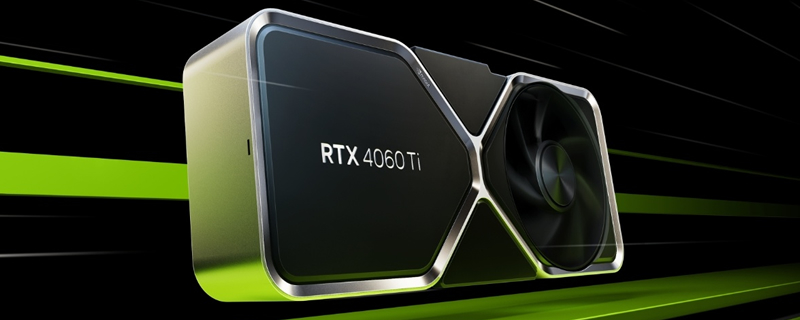“Nothing but mistakes” – YUZU emulator team calls Nvidia’s GeForce RTX 4060 Ti design a “serious downgrade”
The YUZU team has called Nvidia’s RTX 4060 Ti a “serious downgrade” when compared to its predecessor – Memory bandwidth matters
When Nvidia launched their RTX 4060 Ti graphics card, there were a lot of complaints that the graphics card did not have enough memory bandwidth to run modern games, with team GeForce offering users a mere 8GB of GDDR6 memory across a slim 128-bit memory bus. While most analysts focused on the amount of memory that Nvidia were offering, the team behind the YUZU emulator were concerned about the bandwidth that the GPU offered, as the RTX 4060 Ti’s 1280-bit memory bus is a huge downgrade over the RTX 3060 Ti’s 256-bit memory bus.Â
In their May progress update for their emulator, the team behind YUZU have questioned Nvidia’s hardware decisions when creating their RTX 4060 Ti, stating that it is “nothing but mistakes”, and that the Lovelace architecture’s additional L2 cache does not make up for this GPU’s memory bus downgrade. For Switch emulation, Nvidia’s RTX 4060 Ti is slower than its predecessor, as the emulator more than saturates the RTX 4060 Ti’s cache.Â
The YUZU team calls Nvidia’s RTX 4060 Ti a “terrible investment” for Switch emulation, and has called the CPU a “serious downgrade” over its predecessor. The YUZU team has said that fans of emulation should avoid the graphics card, and hopes that Nvidia can release their planned 16GB RTX 4060 Ti graphics cards with GDDR6X memory to help mitigate this problem.
Below is what the YUZU team had to say about Nvidia’s RTX 4060 Ti.
  Now, on to the disappointing news: the RTX 4060 Ti.
We don’t understand what kind of decisions NVIDIA took when deciding the Ada Lovelace GeForce product stack, but it has been nothing but mistakes. The RTX 4060 Ti 8GB with only a 128-bit wide memory bus and GDDR6 VRAM is a serious downgrade for emulation when compared to its predecessor, the 256-bit wide equipped RTX 3060 Ti. You will be getting slower performance in Switch emulation if you get the newer product. We have no choice but to advise users to stick to Ampere products if possible, or aim higher in the product stack if you have to get a 4000 series card for some reason (DLSS3 or AV1 encoding), which is clearly what NVIDIA is aiming for.
The argument in favour of Ada is the increased cache size, which RDNA2 confirmed in the past helps with performance substantially, but it also has a silent warning no review mentions: if you saturate the cache, you’re left with the performance of a 128-bit wide card, and it’s very easy to saturate the cache when using the resolution scaler — just 2X is enough to tank performance.
Spending 400 USD on a card that has terrible performance outside of 1X scaling is, in our opinion, a terrible investment, and should be avoided entirely. We hope the 16GB version at least comes equipped with GDDR6X VRAM, which would increase the available bandwidth and provide an actual improvement in performance for this kind of workload.
Memory bandwidth is an important aspect of CPU and GPU design. There is a reason why memory controllers often improve with every hardware generation, and every new CPU/GPU architecture from AMD, Intel, or Nvidia comes with hardware changes that will increase cache sizes, available memory bandwidth, or utilise memory bandwidth more efficiently.
With their RTX 4060 Ti, Nvidia’s delivered a graphics card with a smaller memory bus than its predecessor, and its slightly faster GDDR6 memory is not enough to make up for the raw bandwidth difference between the 128-bit RTX 4060 Ti and the 256-bit RTX 3060 Ti, resulting in performance regressions in some workloads.
In the eyes of the YUZU team, Nvidia’s RTX 4060 Ti is a huge disappointment. Let’s hope that Nvidia can learn a lesson from these complaints and ensure that similar hardware regressions are avoided when the company creates future GeForce RTX graphics cards.
You can join the discussion on Team YUZU’s thoughts on Nvidia’s RTX 4060 Ti on the OC3D Forums. Â




